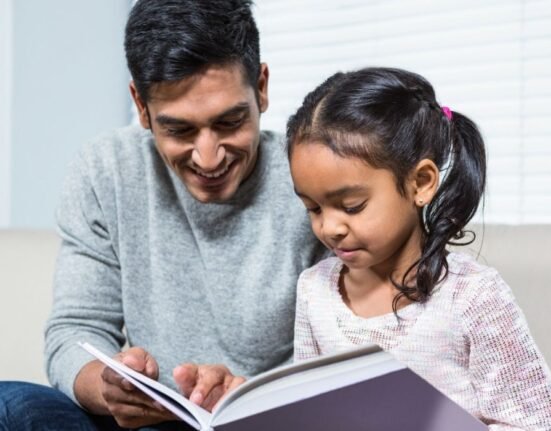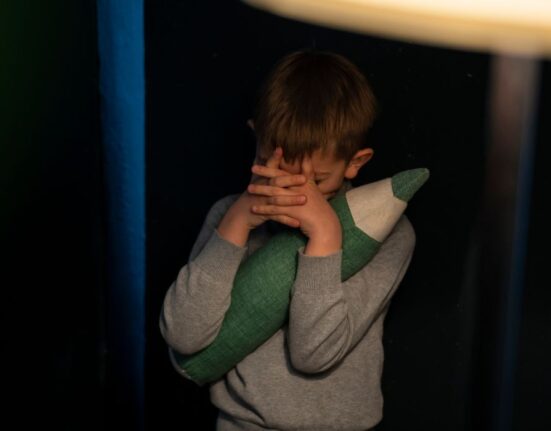The shift in parenting styles from authoritarian to more permissive involves more than just a modification in discipline methods; it signifies a deep-seated change in how children are seen. Today’s parent sees their child as an individual whose thoughts are respected and taken into consideration, not as a subordinate. This paradigm shift is consistent with theories of developmental psychology, such as those of Vygotsky and Piaget, that emphasize the need to structure a child’s learning experiences and honour their developmental phases. Authoritative parenting—that is, combining empathy with well-defined rules—is becoming more and more popular since it is linked to children’s social and psychological development.
Read more: Violent Video Games and Aggression in Young Children
The Digital Dilemma: Navigating New Frontiers
Parents are the first line of defence in the digital sphere against the numerous difficulties that come with the territory. They are the creators of the family’s digital ideology and frequently provide examples of how technology is included in the lives of their kids. This entails establishing age-appropriate screen time limitations in addition to developing a balanced media diet that prioritizes high-quality and instructive content. In addition, parents are increasingly taking on the role of independent educators by educating their kids about digital citizenship and moral behaviour online—two critical life skills in the digital age.
Read More: How to Handle Children’s Dictatorial Demands
Work-Life Balance: Striving for Equilibrium
In the present day, finding a work-life balance is more important than ever. In their quest to redefine success, parents frequently place a higher value on time than money. Among the ways that contemporary parents are changing the traditional 9-to-5 paradigm to accommodate family life are the gig economy, telecommuting, and work sharing. Businesses are starting to adapt, although slowly, to this cultural shift by providing more flexible work schedules and parental leave. They understand that assisting workers with their families can increase employee retention and job satisfaction.
Read More: Empathy in Action: Helping Children Navigate Big Emotions
Educational Involvement: Beyond Academics
Parents increasingly see the school as a collaborator in a broader educational ecosystem that also involves the community and the family as education changes. They look for educational institutions that share their values and are open to augmenting formal education with extracurricular pursuits and practical experience. The intention is to develop a well-rounded person who can successfully navigate an increasingly complex world, not merely a student. The value of disciplines like mindfulness, personal finance, and coding is rising to par with that of traditional academic subjects, reflecting education’s shifting goals in contemporary society.
Prioritizing Health and Wellbeing
Given the strong correlation between physical and mental health, modern parents are frequently equally worried about their children’s mental well-being. Parents are becoming more alert to the warning signs and symptoms of mental distress as a result of a growing understanding of disorders like anxiety and depression in children and adolescents. They work to de-stigmatize the need for therapy or counselling when it’s required by fostering an atmosphere in which mental health is freely discussed. By teaching kids stress management skills, self-reflection, and mindfulness, we hope to give them the tools to deal with life’s ups and downs. This is why emotional regulation and resilience are so important topics.
Apart from the aforementioned, parents are also realizing how important it is to provide a good example for their children by modelling healthy behaviour. They know that their behaviours around technology use, work-life balance, health, and education provide a strong model for their kids. Thus, contemporary parenting is about growing personally and improving oneself just as much as it is about raising children.
Read More: The Role of Parents in Career Choice
To create an extensive piece on contemporary parenting, each of these enlarged sections might be further elaborated with particular instances, case studies, or the most recent research results. Tell me if you would like to add such information or if there are any other particulars you would like to discuss in more depth!
Handling Social and Cultural Sensitivity
Modern parenting requires preparing kids to be global citizens in a society that is becoming more interconnected by the day. They will learn about social justice, environmental responsibility, and many cultures as part of this. Growing numbers of parents are conscious of the influence their education has on their kids’ growth into compassionate, culturally sensitive adults.
Read More: Can Disney Play a Major Role in Child Development?
Navigating Cultural and Social Awareness
Raising children in the current world requires teaching them to be global citizens in an increasingly interconnected environment. Teaching students about many cultures, social justice, and environmental responsibility are all part of this. Parents are becoming more conscious of the influence their lessons have on their kids’ growth into compassionate, culturally aware adults.
The Impact of Social Media
Social media may be a double-edged sword for modern parents. It provides a forum for guidance and experience sharing, but it can also encourage unjustified comparisons and pressure to present the ideal family life. It takes a keen eye and a balanced approach to navigate this area.
Read More: Effects of social media on children’s mental health
Raising Children in a Changing World
Today’s parents are raising children in a world that is vastly different from the one they grew up in. They are preparing their children for jobs that don’t yet exist, using technologies that are constantly evolving, and facing global challenges like climate change. This requires a parenting approach that is flexible, forward-thinking, and open to continuous learning.
The Role of Community and Extended Family
The significance of the extended family and the larger community is also acknowledged in modern parenting. In a child’s upbringing, grandparents, aunts, uncles, and even close friends can have a big influence. This “village” approach to parenting is becoming more and more valued as people realize how important it can be to have help from a larger network.
The journey of modern parenting is dynamic and always evolving. It takes a combination of love, tolerance, comprehension, and the capacity to change and grow with the times. Parents who embrace these facets of parenting can create a nurturing atmosphere that fosters children’s development into mature, responsible, and compassionate adults. Even while this path is difficult, it is also very fulfilling because it moulds not only the current generation but also the foundation of our society in the future.
References +
- Smetana, J.G. (2017). Current research on parenting styles, dimensions, and
beliefs. Current Opinion in Psychology, 15, 19-25. doi:
10.1016/j.copsyc.2017.02.012. - https://www.ncertbooks.guru/ncert-books-class-12-psychology/













Leave feedback about this